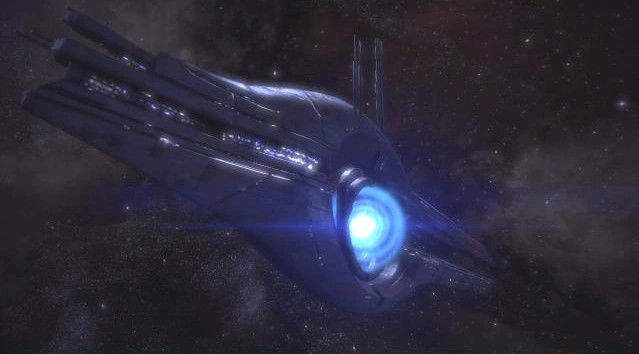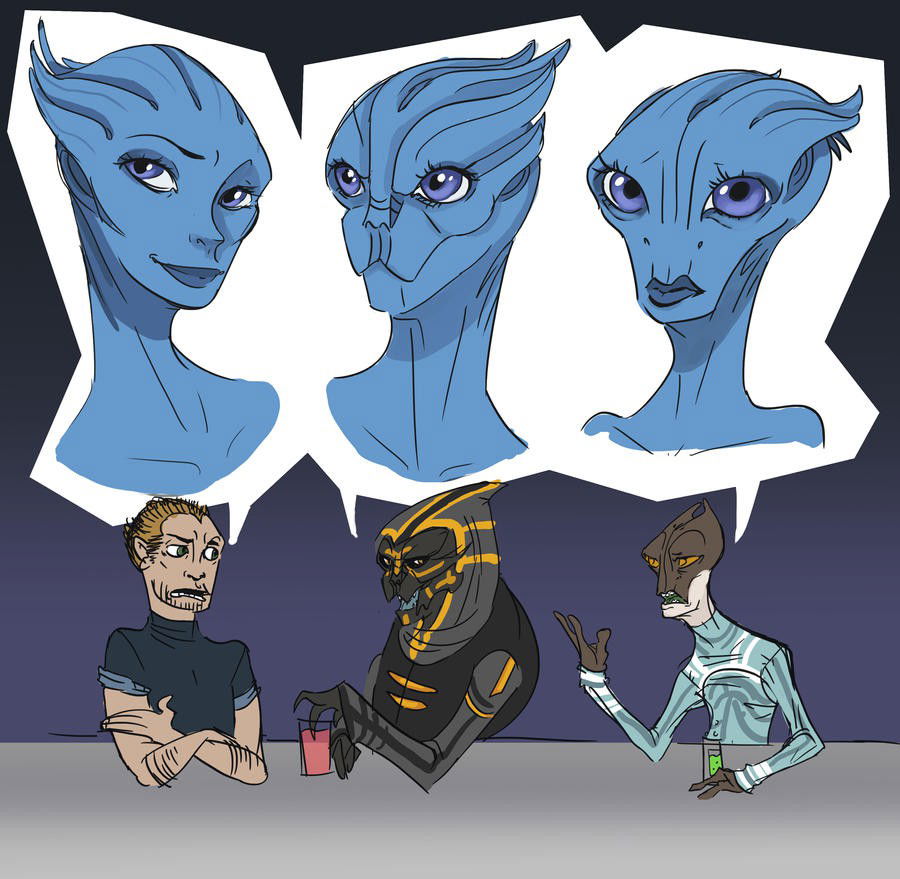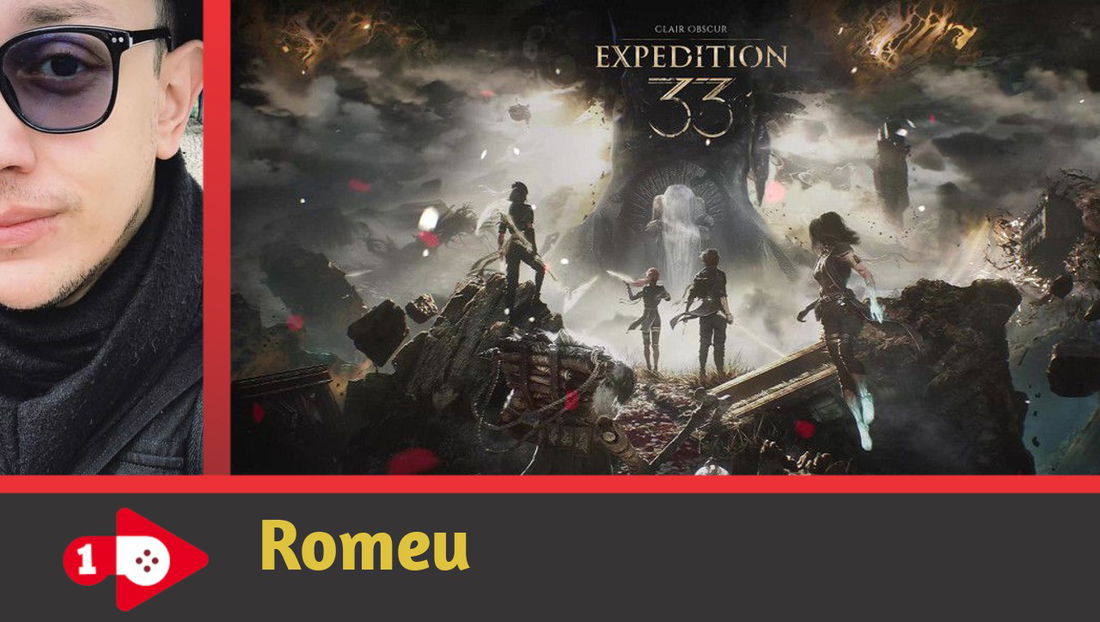When we think about computer or console RPG games, massive sagas like Final Fantasy, Phantasy Star, Secret of Mana, Dragon Quest, Chrono Trigger, and other titles from Japan immediately come to mind. That is, until Bioware arrived on the scene and redefined everything we knew about Western RPGs!
I’m not saying there weren’t great Western games that could be called RPGs before, but they lacked that creative spark, that true “tabletop RPG” essence that players craved. Those games had plenty of “G” but very little “RP.” Bioware identified this gap and delivered games like Knights of the Old Republic and Jade Empire. However, it was Mass Effect and Dragon Age that took the genre to an entirely new level.
So what made Mass Effect such an unprecedented success? Let’s look into the reasons why Mass Effect became such an iconic series. Have any questions? Leave a comment!
The Beginning of the Journey
After developing two highly successful games within the Star Wars universe, Knights of the Old Republic 1 and 2 (commonly referred to as KOTOR 1 and KOTOR 2), as well as an MMORPG on the same theme, Bioware felt constrained by the limited creative freedom imposed by Lucasfilm (now under Disney ownership). The founders and developers at Bioware were eager to craft their own universe where they could maintain full creative control over its story, characters, and future expansions.
This ambition sparked the creation of Mass Effect. The idea was to build a brand-new sci-fi franchise that offered the vast worldbuilding of Star Wars but with a more mature, player-driven focus. Instead of lightsabers, there were laser rifles and plasma pistols. In place of “The Force,” there were biotic powers. Gone were the familiar red or green-skinned aliens, replaced by archetypal blue-skinned beauties.
Mass Effect emerged as a revolutionary concept, taking cues from Star Wars, Battlestar Galactica, and the literary works of writers like Arthur C. Clarke.
The name “Mass Effect” was inspired by a scientifically plausible yet fictional principle in physics that forms the foundation for interstellar travel in the game’s world. This concept, intertwined with the discovery of ancient ruins left behind by an extinct civilization called the Protheans, set the stage for the deep lore that tied the trilogy together.
This is how the story begins:
The Year 2148...
While exploring Mars, humanity unearthed the ruins of an ancient civilization known as the Protheans. This mysterious society had disappeared thousands of years prior, leaving no explanation for their extinction. Their final records provided crucial insights into their advanced culture and technology.
After analyzing this data, humans discovered an abandoned station on the outskirts of the Solar System, near Pluto, whose function they couldn’t yet comprehend. This station was what we now call a Mass Relay.

Determined to investigate this mysterious structure, humanity sent an exploratory spacecraft to get closer. Upon approach, the ship was suddenly engulfed by an unknown energy field and instantly catapulted into the far reaches of the galaxy.
This phenomenon, named the Mass Effect, gave humanity the ability to explore the galaxy, colonize other planets, and make discoveries that would change life on Earth forever. Humanity was no longer confined to the cosmos: we had gained access to the entire Milky Way.
Just a decade later, in 2158, humanity established a colony on a planet called Shanxi. This milestone moment was interrupted when humanity encountered an alien species for the first time: the Turians. Claiming that Shanxi were theirs, the Turians declared humanity as trespassers. With a peaceful resolution swiftly ruled out, the First Contact War began. Due to the Turians’ advanced technology and natural resilience, humanity quickly found itself disadvantaged. However, a determined officer from Earth, General Williams, devised an ingenious strategy that enabled humanity to regain control of Shanxi.
The counteroffensive and impending escalation of the war finally drew the attention of the Citadel, the galaxy’s central political hub. Representatives from the Citadel intervened, inviting both sides to the table in hopes of negotiating peace. This brought the war to an end, revealing to humanity for the first time that they were only a small part of a much larger galactic community. With this newfound awareness, Earth’s leaders embraced opportunities to connect with alien species, ultimately earning humanity an invitation to join the Galactic Council.
This diplomatic leap came with critical technological support, enabling humanity to reach equality with the other races and ensuring peace among species.
Years later
Years later, now fully integrated into Citadel society, humanity had gained enough political influence to push for one of its own to join the Spectres. These elite agents, tasked with safeguarding galactic peace, represented the pinnacle of military and strategic prowess. Having a human among their ranks would solidify humanity’s place as a vital part of interstellar politics.
Humanity’s nominee for this coveted position was Commander Shepard. (By default, Shepard’s first name is John for a male or Jane for a female.) Alongside two cadets and a seasoned Turian Spectre, Shepard set out to investigate the mysterious disappearance of humans at a colony on Eden Prime. This seemingly routine mission took a dark turn upon arrival.
Eden Prime was more than just a colony; it represented humanity’s hope for intergalactic expansion. Upon landing, Shepard and their team discovered that the colony had been devastated by unknown forces led by a rogue Spectre, Saren Arterius. Saren had betrayed the Citadel and aligned himself with a far greater and more terrifying entity: the Reapers, ancient machines bent on eradicating all advanced organic life.
During the mission, Shepard uncovered a Prothean artifact known as the Eden Prime Beacon. The Beacon projected a series of cryptic and haunting visions directly into Shepard’s mind. These fragmented glimpses foretold widespread destruction, massive machines exterminating entire civilizations, and a looming apocalypse. From this moment onward, Shepard was thrust into the role of the first human Spectre, equipped with the autonomy and resources to act independently in defense of the galaxy.
Though the visions were incomplete, they marked the beginning of Shepard’s journey to uncover the Reapers' true intentions, stop Saren, and avert extinction before it was too late.
The foundations of Mass Effect's success
Mass Effect received both critical and commercial acclaim. It achieved stellar ratings on Metacritic, sold over 20 million copies, and cultivated a loyal fanbase.
Its universe expanded with novels, comics, and an animated feature, with rumors of a live-action series surfacing from Prime Video or Netflix.
So, what exactly contributed to this game’s monumental success? What made Mass Effect a defining moment in RPG history and a major influence on the countless games that followed?
Let’s break it down:
The Protagonist
Protagonists in RPGs often take one of two routes: they either begin as established, powerful figures or develop into iconic heroes as their story unfolds.
In the first Mass Effect, Shepard is introduced as a respected individual who is still working to build a legacy. By the time of Mass Effect 2 and Mass Effect 3, Shepard is a legendary hero whose actions resonate throughout the galaxy, and it is a fact consistently emphasized by those they encounter.
This dynamic makes players truly care about what happens to Shepard and deeply invest in the decisions they’ll make throughout the journey. Furthermore, the superb performances by voice actors Mark Meer and Jennifer Hale have received widespread praise from both critics and fans.

A Captivating Story
Many RPGs are known for their rich and detailed lore but often fail to present these details in an accessible way, leaving players to dig through optional files or external media for context. This disconnect can make it difficult to fully appreciate a game’s world during the pace of normal gameplay.
Mass Effect excels at seamlessly integrating its deep universe into the main narrative, ensuring players understand key aspects of the lore without sidetracking from the core gameplay experience.
While there are supplementary materials that enrich the lore with added depth, the main trilogy delivers practically all the information you need. By playing through the games, you organically learn about pivotal events like the Genophage, the First Contact War, and the political structure of the Citadel without needing to search for outside resources.
Memorable Villains
Mass Effect does a masterful job of establishing the Reapers as an authentic and terrifying threat. From the outset of the series, it’s clear how these synthetic aliens have wiped out advanced civilizations in the past and intend to repeat this cycle with the current species of the Milky Way. By the time the Reapers launch their invasion in the third game, their overwhelming strength leaves a profound impact.
This omnipresent sense of dread builds anticipation for the inevitable showdown with the Reapers, making the final victory all the more rewarding. Unlike many RPG antagonists, who may feel distant or ineffective, the Reapers evoke real tension, as they represent a tangible existential threat to all life.
Romantic Relationships
The Mass Effect trilogy, particularly Mass Effect 2 and Mass Effect 3, provides players with diverse romance options designed to appeal to a wide range of preferences. Although there could be more same-sex relationship choices, the options available go far beyond what most games at the time offered and paved the way for titles like Baldur’s Gate 3.
Each major romance features dramatic, and occasionally @@@@, scenes alongside intense storytelling. These romances are a memorable aspect of the experience, serving to deepen emotional connections between the player, the characters, and the game’s universe. Ask any fan of the series who they romanced, and they’ll likely recount their choice vividly, no matter how long it’s been since their last playthrough.
Decisions with Real Impact
RPGs are often criticized for offering choices that feel meaningful but have minimal consequences. This is far from true in the Mass Effect trilogy.
Here, your decisions have a lasting, significant impact. Across the series, the fate of major characters and even entire species is determined by your actions. For example, poorly considered decisions in Mass Effect 2 can result in the deaths of all your squadmates. This level of depth makes your choices feel weighty and ensures every decision carries emotional engagement.
The Aliens
Mass Effect introduces players to a universe teeming with alien species, steering clear of the generic mutated monsters or strange animalistic creatures found in other RPGs. The series sets itself apart by making alien races as complex and relatable as humans. Each species has its own unique history, culture, societal norms, homeworlds, and technologies.
For instance, no one truly knows what an Asari looks like because each species perceives them as the pinnacle of beauty, according to their own cultural standards. The Salarians tie into classic alien abduction tales, while the Krogan narrative balances hilarious absurdity with intense tragedy.
Unlike other games, where aliens are often relegated to being generic villains or side characters, Mass Effect builds a diverse, interconnected ecosystem for the galaxy. This approach adds a layer of richness and makes exploration all the more captivating.

Emotional Bonds with Companions
In Mass Effect, your interactions with your companions go far beyond simple banter or combat cooperation. Each relationship is so well-developed that it often leads to dedicated missions exploring a character’s background and personal goals. This approach creates a strong emotional bond, turning companions into more than just allies; they feel like genuine friends or even family.
Few RPGs achieve this level of depth when it comes to character relationships. In Mass Effect, the shared conversations and key moments resonate throughout the game, enriching your experience and making every squadmate feel unforgettable.
About Mass Effect
Mass Effect is an action RPG series developed by BioWare and published by EA Games. The story revolves around Commander Shepard, a soldier tasked with saving the galaxy from unstoppable threats, including the menacing Reapers. The series is highly regarded for giving players meaningful choices, where every decision shapes the story and influences relationships with other characters. The gameplay combines tactical combat, planetary exploration, and a rich narrative filled with worldbuilding and character development.
In Mass Effect, players create and develop Shepard, customizing their skills, morality, and major decisions over the course of the trilogy. Along the way, players interact with various alien species, form alliances, battle fierce enemies, and, depending on their choices, can even pursue romantic relationships. Each game offers multiple endings based on player choices, and every character has a significant role in shaping the story.
With its blend of exciting action and deep RPG elements, Mass Effect stands out for its intricate storytelling and player-driven customization, delivering a unique and engaging experience with every playthrough.
The series is available on multiple platforms, including PC, PlayStation, Xbox, and, more recently, the remastered Mass Effect Legendary Edition for PlayStation 4, Xbox One, and PC.











— Comments 0
, Reactions 1
Be the first to comment